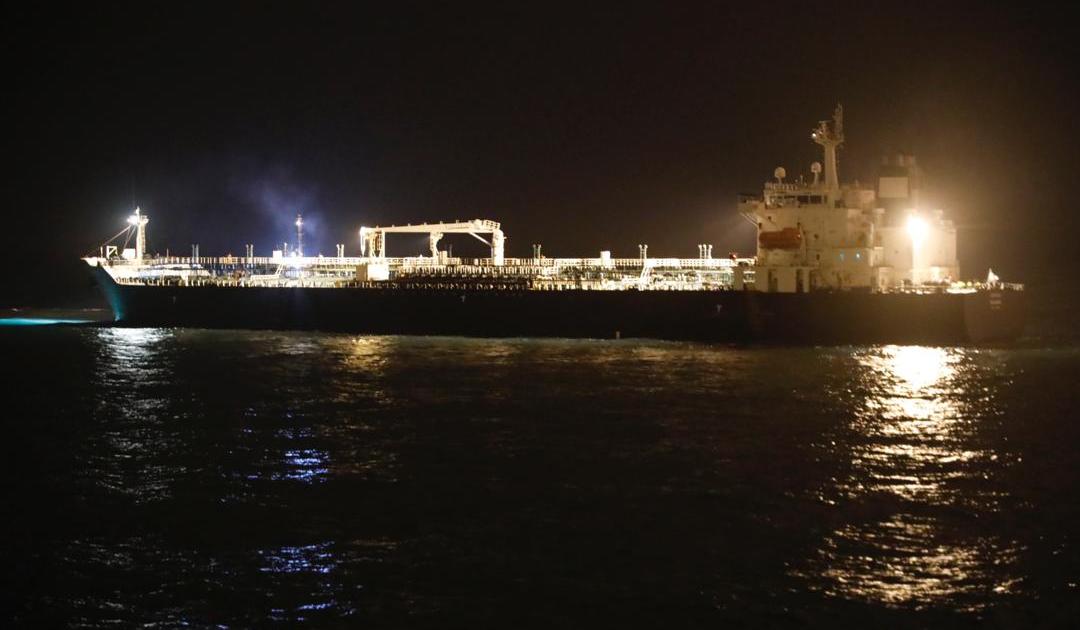US prosecutors filed a lawsuit to seize the 4 tankers that Iran shipped to Venezuela, in the latest attempt by President Donald Trump's administration to increase economic pressure on the two opponents of the United States.
The lawsuit says that the tankers that carry Iranian gasoline intend to transfer it from one ship to another to avoid the sanctions, and added that the tanker Pandey, for example, carried out such a transfer in the port of Khaled in the Emirates to stealthily load Iranian gasoline.
It indicates that the profits from the shipments support a full range of nefarious activities, including the proliferation of weapons of mass destruction, support for terrorism and another set of human rights violations at home and abroad.
The lawsuit, on which the Wall Street Journal was the first to report, stated that federal prosecutors are aiming at its filing to prevent the delivery of Iranian gasoline aboard the tankers Bella, Bering, Bandi and Luna flying the flag of Liberia, and also seeks to prevent such shipments in the future.
After the lawsuit was filed, District Court Judge James Bosberg on Thursday ordered the confiscation of more than 1.1 million barrels of gasoline loaded into the four tankers.
Territorial waters
Legal sources said that it is unlikely that the authorities in the United States could confiscate gasoline unless the tankers entered US territorial waters, but added that the measures could help induce other countries to cooperate in the confiscation of fuel.
The plaintiffs claim that Iranian businessman Mahmoud Madani Boor helped arrange the shipments by changing the documents for the tankers to avoid US sanctions.
According to the lawsuit, since September 2018, the Quds Force of the Iranian Revolutionary Guard has been transporting oil through a penal network subject to sanctions, including dozens of ship managers, tankers and intermediaries.
And the Trump administration failed last year to stop the tanker Adrian Daria, which was called Grace 1, in the Mediterranean Sea for transporting Iranian oil, through measures including placing it on a blacklist.
It was the British Marines that initially seized the tanker on suspicion that it was on its way to Syria, but Gibraltar authorities released it after receiving written assurances from Tehran that the ship would not unload its 2.1 million barrels of oil in Syria.

